#Village People
Text
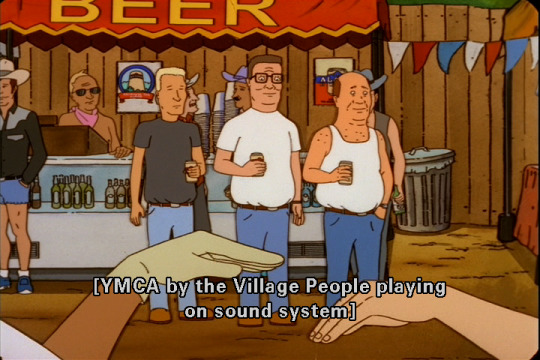
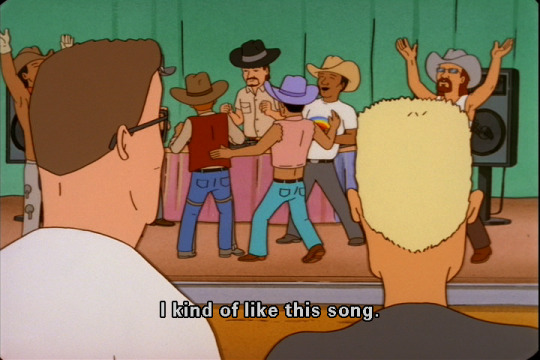
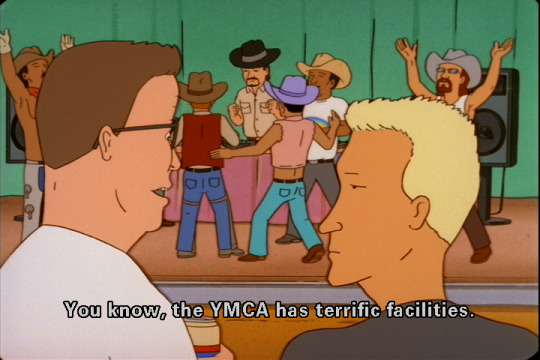
#King of the Hill#season 6#My Own Private Rodeo#Hank Hill#Boomhauer#YMCA#Village People#happy pride 🌈
11K notes
·
View notes
Text
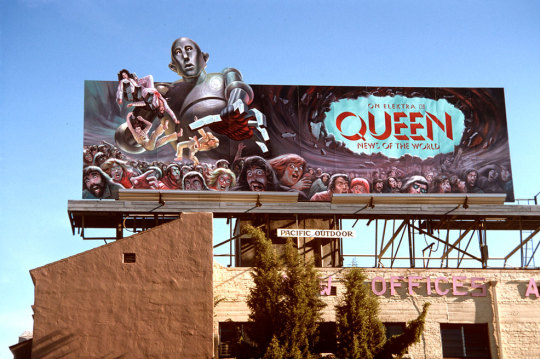
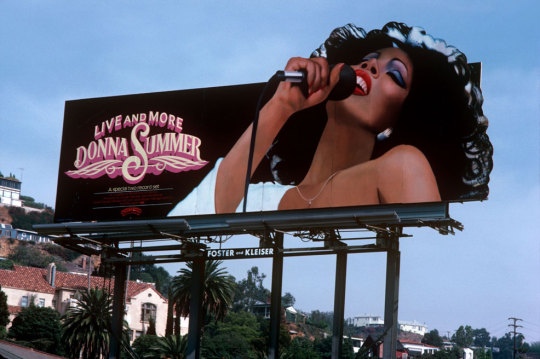

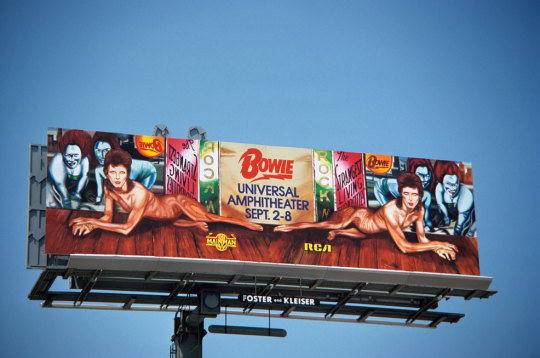


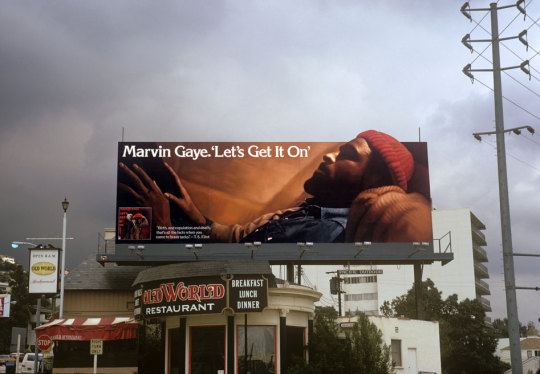
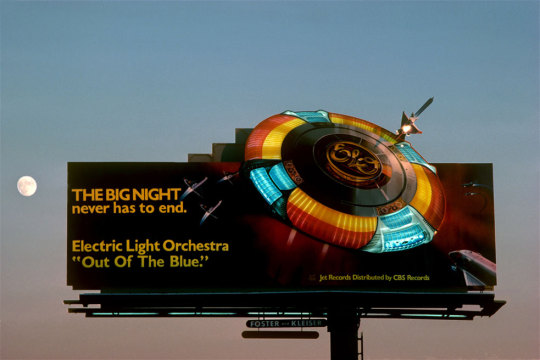
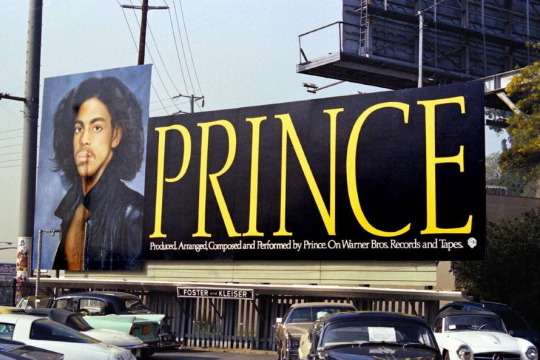
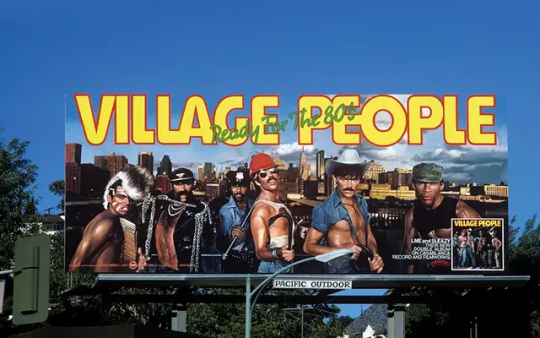
Sunset Strip rock billboards (photos by Robert Landau and others)
#rock and roll#robert landau#sunset strip#donna summer#cheap trick#electric light orchestra#david bowie#linda ronstadt#queen#prince#joni mitchell#village people#marvin gaye#hollywood#los angeles#billboards
2K notes
·
View notes
Text
Glenn Hughes from the Village People in "Can't stop the Music" (1980)
#the village people#village people#can't stop the music#glenn hughes#ymca#gay history#lgbtq history#lgbt history#leather#leather men#leather man#horseshoe moustache#moustache#hairy male#gay hairy
642 notes
·
View notes
Text
"On Monday, the group’s manager, Karen Willis, filed a formal cease and desist notice to the 45th president to stop further unauthorized performances or use of the music.
Willis, who happens to be the wife of the Village People’s lead singer Victor Willis, says the clip of the event — which has been circulating Twitter via @MJisMAGA — has caused a great deal of confusion for fans who mistakenly believed this was the real Village People.
“Though my husband has tolerated your client’s use of his Village People music, we cannot allow such use by him to cause public confusion as to endorsement,” Willis wrote to Trump’s lawyer Joseph Tacopina."
583 notes
·
View notes
Text

fun facts
although on the surface "YMCA" appears to be about hanging out at the YMCA, the song became a gay anthem of sorts since the YMCA was a popular cruising and hookup spot for young gay men at the time. Writer and singer Victor Willis's publicist said on his behalf that "Victor Willis wrote about the YMCA and having fun there, but the type of fun he was talking about was straight fun. When he says, 'Hang out with all the boys'… he's talking about the boys, the fellas". so... is "YMCA" about having straight fun or gay sex? the world may never know.
the co-writers of "Jenny" have conflicting stories on its lore. Jim Keller claims that Jenny was an ex of his whose number was written on the wall of a bar bathroom, and he called her on a dare then ended up dating her for a bit. Alex Call, however, says Jenny never existed, but he doesn't remember where the number came from
313 notes
·
View notes
Text
The strongest evidence that Wilson is gay is the fact that he knows too much about The Village People.
S3 Ep16, "Actually he was only in the Nazy when they sang In The Navy." My man's said that way too quick.
#house#wilson#hilson#village people#you and i both know the real meaning of YMCA wilson#wilson is gay#james wilson#gregory house
66 notes
·
View notes
Text
Village People - YMCA OFFICIAL Music Video 1978
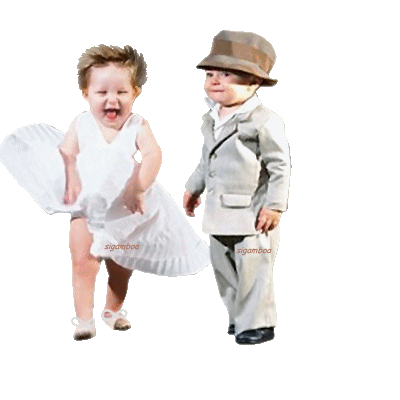
38 notes
·
View notes
Text

i made a cover for my gender playlist* and i think it came out pretty nice
current tracklist under cut, though i will be expanding it and welcome suggestions!
*a playlist that i think encapsulates what i want my gender to be :-)
🪩
Stayin Alive by Bee Gees
You Should Be Dancing by Bee Gees
Hot Cop by Village People
Love Machine by Wham!
Take on Me by a-ha
Down Under by Men At Work
Working for the Weekend by Loverboy
👢
Big Iron by Marty Robbins
The Devil Wears a Suit and Tie by Colter Wall
Sleeping on the Blacktop by Colter Wall
God's Gonna Cut You Down by Johnny Cash
Daddy Sang Bass by Johnny Cash
Folsom Prison Blues by Johnny Cash
Sixteen Tons by Johnny Cash
#autismsupersoldier originals#disco#disco ball#cowboy boots#disco aesthetic#70s aesthetic#trans artist#idk what else to add#im kind of sad right now so i appreciate any compliments#never be afraid that i will be creeped out or something i love when people say nice things to me!#maybe i should add the artists too so i can find others who like em but i dont wanna be annoying and spam the tag but. agh#well. whats the worst that can happen#wham!#bee gees#village people#a-ha#colter wall#marty robbins#johnny cash#men at work#loverboy#playlist
46 notes
·
View notes
Text


Dalida & Village People
75 notes
·
View notes
Text
✨ 10 YEARS OF TUMBLR ✨
On this day 10 years ago, I started on this site and it has been an adventurous pleasure. I've discovered new things through it, or it has been a great tool to strengthen old things dear to me. From Sherlock to Fellow Travelers, this is me. Looking forward the next ten years to come!
Films in order of appearance:
I Confess (1953), Sherlock S2E3 (2012), Titanic: Blood and Steel S1E6 (2012), Chaplin, Fairbanks, Pickford & Griffith Signing United Artists Contract (2019), Da Vinci's Demons S2E8 (2014), The Mike Walsh Show (1984), Midnight Cowboy (1969), The Red Shoes (1948), Fantasia (1940), The Shining (1980), Potop (1974), Bodo S1E3 (2016), Anders als die Andern (1919), The Godfather Part II (1974), Saint Laurent (2014), Call Me By Your Name (2017), Knife + Heart (2018), Shadow of a Doubt (1943), Dracula (1931), Red River (1948), Sebastiane (1976), I racconti di Canterbury (1972), Bohemian Rhapsody (2018), Lazzaro felice (2018), Versailles S1E1 (2015), Das Boot S1E3 (2018), Trading Places (1983), Matthias & Maxime (2019), Elvis (2022), Laulu tulipunaisesta kukasta (1938), Dr. Jekyll & Sister Hyde (1971), Fellow Travelers S1E1 (2023).
Ludwig (1973), Can't Stop the Music (1980), Of Muppets and Men: The Making of The Muppet Show (1981), On Set with Raiders of the Lost Ark (2012), Snow White and the Seven Dwarfs (1937), Disney The Multiplane Camera, Walt Disney S1E1 (2015), The Making of Star Wars (1977), Salò: Open Your Eyes! (2008), Dario Argento's Tenebrae (1982), Making The Shing (1980).
Music:
London Boys "My Prayer" (1993)
#10 years of tumblr#personal#bbc sherlock#village people#walt disney#reinhold schünzel#call me by your name#red river#sebastiane#frank oz#ralph bates#fellow travelers#steven spielberg#pier paolo pasolini#dario argento#stanley kubrick#this is me#i created this project a month ago & the last 7 days have been crazy wonderfull sleepless nights#a deep dive into my own history & dearest passion#thank you all i hope you like it#<3#my video#my edit#own post
14 notes
·
View notes
Text

Glenn Hughes
23 notes
·
View notes
Text
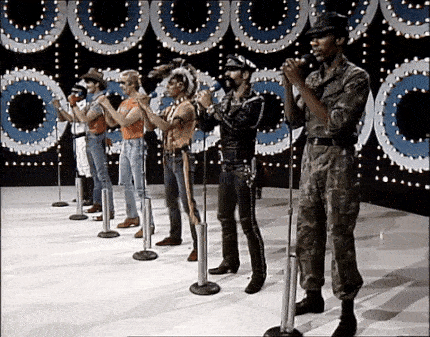

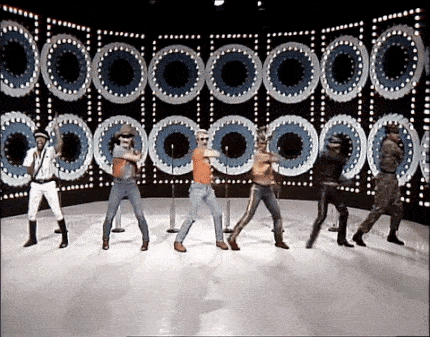


Village People – Can't Stop The Music (1980) [X]
#village people#can't stop the music#musicgifs#music videos#music video#my gifs#gifs#gifset#dancing#musicians#soupy's#80s#disco#ray simpson#randy jones#david hodo#felipe rose#glenn hughes#alex briley#dailymusicians#dailymusicedit
41 notes
·
View notes
Text

Glen Hughs of the Village People. 1978. New York City
24 notes
·
View notes
Text

fun facts
although on the surface "YMCA" appears to be about hanging out at the YMCA, the song became a gay anthem of sorts since the YMCA was a popular cruising and hookup spot for young gay men at the time. Writer and singer Victor Willis's publicist said on his behalf that "Victor Willis wrote about the YMCA and having fun there, but the type of fun he was talking about was straight fun. When he says, 'Hang out with all the boys'… he's talking about the boys, the fellas". so... is "YMCA" about having straight fun or gay sex? the world may never know.
"Pumped Up Kicks" follows a fictional character as he fantasizes about killing his rich classmates. the odd pairing of upbeat tune and dark lyrics was intentional: Mark Foster said that "it’s a ‘fuck you’ song to the hipsters in a way – but it’s a song the hipsters are going to want to dance to"
219 notes
·
View notes
Text
Year-End Poll #30: 1979
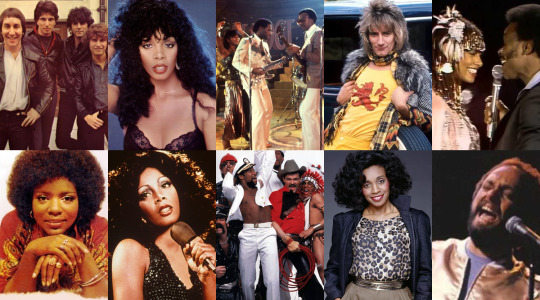
[Image description: a collage of photos of the 10 musicians and musical groups featured in this poll. In order from left to right, top to bottom: The Knack, Donna Summer (x2), Chic, Rod Stewart, Peaches & Herb, Gloria Gaynor, Village People, Anita Ward, Robert John. End description]
More information about this blog here
We have made it through another decade, everyone. As we reach the end of the 1970's, we are also reaching the end of disco. This is something that makes this genre stand out in a historic sense. Because while we've covered many genres tied to their decade (traditional pop with the 50s, doo-wop with the 60s, etc), those didn't necessarily end the moment the decade switched over. We're still in disco's peak (the dance party before the storm), and many of the songs and artists featured on today's poll are still considered classics. Fun fact, the original name for Chic's Le Freak was called Fuck Off!, which in my opinion is the correct way to sing along to it. The song was written after the band couldn't get into Studio 54, the disco hot spot of the 1970's.
Which brings us to the first crumbling pillar that will send disco collapsing. As disco became mainstream, the aesthetics of disco became less about marginalized people surrounding themselves with opulence and luxury as an escape, and more about...the opulent surrounding themselves with more luxury. The communities who had built this subculture were getting priced out of their own hot spots as the upper class and the celebrities flocked to the hot new thing.
But the disco backlash wasn't just marginalized people and disco purists frustrated with the gentrification and commodification of their subculture. In fact, I think it's safe to say that they were the minority. In reality, the disco backlash had two main prongs: the general music-listening public who was sick of hearing disco on every station, and/or bigots who would hate any kind of Black or gay music they heard no matter how commercialized it became.
So, let's talk about Disco Demolition Night.
July 12th, 1979, the rock vs. disco conflict reached its ugliest peak as tens of thousands of people stormed Comiskey Park in Chicago. Disco records were crushed, burned, and even blown up. The event soon broke out into a riot and thankfully no one was killed, but the demonstration still casts an unpleasant shadow over this moment in music history.
I don't want to diminish the ugliness of this event. As Craig Werner, a professor of African American studies at the University of Wisconsin put it:
"The Anti-disco movement represented an unholy alliance of funkateers and feminists, progressives and puritans, rockers and reactionaries. None the less, the attacks on disco gave respectable voice to the ugliest kinds of unacknowledged racism, sexism and homophobia." (A Change Is Gonna Come)
And to quote Chic's Nile Rogers:
"It felt to us like Nazi book-burning. This is America, the home of jazz and rock and people were now afraid even to say the word 'disco'. I remember thinking - we're not even a disco group."
So I don't want to imply that Disco Demolition Night wasn't a shameful moment, because it was. However, it didn't kill disco. I see a lot of music retrospectives use this event as the one climactic moment that killed the genre and forced music itself to change. And I get why; it's an exciting and narratively satisfying conclusion to come to. But I don't want to say that, because I don't want to give Steve Dahl, the anti-disco shock jock radio DJ who organized the event, the credit in taking down an entire subculture.
Commercialization killed disco. White executives and artists cramming disco into everything without appreciating its roots killed disco. Gentrification killed disco. Changing tastes killed disco. Homophobia and racism killed disco. Capitalism killed disco.
A radio DJ and his angry drunk white boy fans storming a baseball stadium didn't kill disco. But it was the symptom of a disease that was already coursing through the system.
And despite the genre's historic death, disco would actually continue to live on past this decade in a variety of ways. Much like most other genres, disco was able to change and evolve with the times -- it just couldn't do so under the "disco" label as even the name itself became poison.
Also, as I said I keep these polls focused on the U.S. charts because that's where I'm from so I have a better understanding of the musical and historic context. However, it seems like disco's death was mostly contained to this country. When I glance at the various European charts (and any European followers can feel free to correct me), disco didn't seem to drop off in the same way. This will become relevant when we cover some of the European crossovers in a few decades.
So as we celebrate/mourn the end of the seventies with its last dance party, we can all come together and agree that whether you're a rock fan or a disco fan, at least most of your music has aged better than talk radio.
See you all in the 80's.
#billboard music#billboard poll#tumblr poll#1970s#1970s music#1979#the knack#donna summer#chic#rod stewart#peaches and herb#gloria gaynor#village people#anita ward#robert john
84 notes
·
View notes